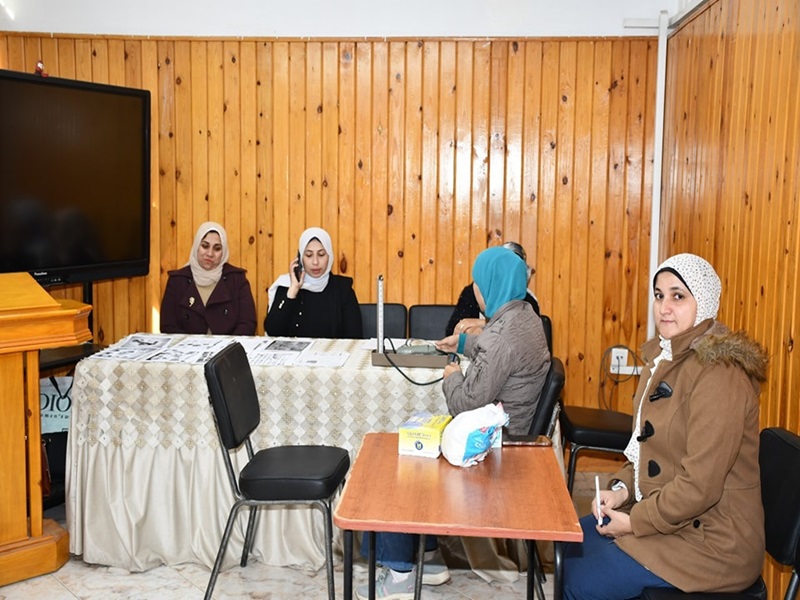400 beneficiaries...The harvest of a comprehensive development convoy of the Women's Support and Anti-Violence Unit at the Faculty of Girls
In conjunction with the global campaign "16 Days of Activism Against Gender-Based Violence," the Women's Support and Anti-Violence Unit at Ain Shams University organized a comprehensive developmental convoy at the Faculty of Girls, at Ain Shams University, over two days. The event was held in collaboration with the Faculties of Medicine and Nursing, under the auspices of Prof. Mohamed Diaa Zain El-Abedeen, President of the University, Prof. Ghada Farouk, Vice President for Community Service and Environmental Development, Prof. Amira Youssef, Dean of the Faculty of Girls, and coordinated by Prof. Heba Barakat, Vice Dean for Community Service and Environmental Development, Prof. Asmaa Zaza, Vice Dean for Education and Students Affairs, and Prof. Hend El-Hilaly, Executive Director of the Women's Support and Anti-Violence Unit.
The Women's Support and Anti-Violence Unit organized a health initiative and a comprehensive medical convoy for female students at the Faculty of Girls. The initiative aimed to raise health and psychological awareness among students through comprehensive medical check-ups, health education, and support for mental and reproductive health, as well as reducing the spread of chronic diseases. It also aimed to improve the overall and mental health of the students, building a generation aware of its health and capable of facing challenges, over the course of two days.
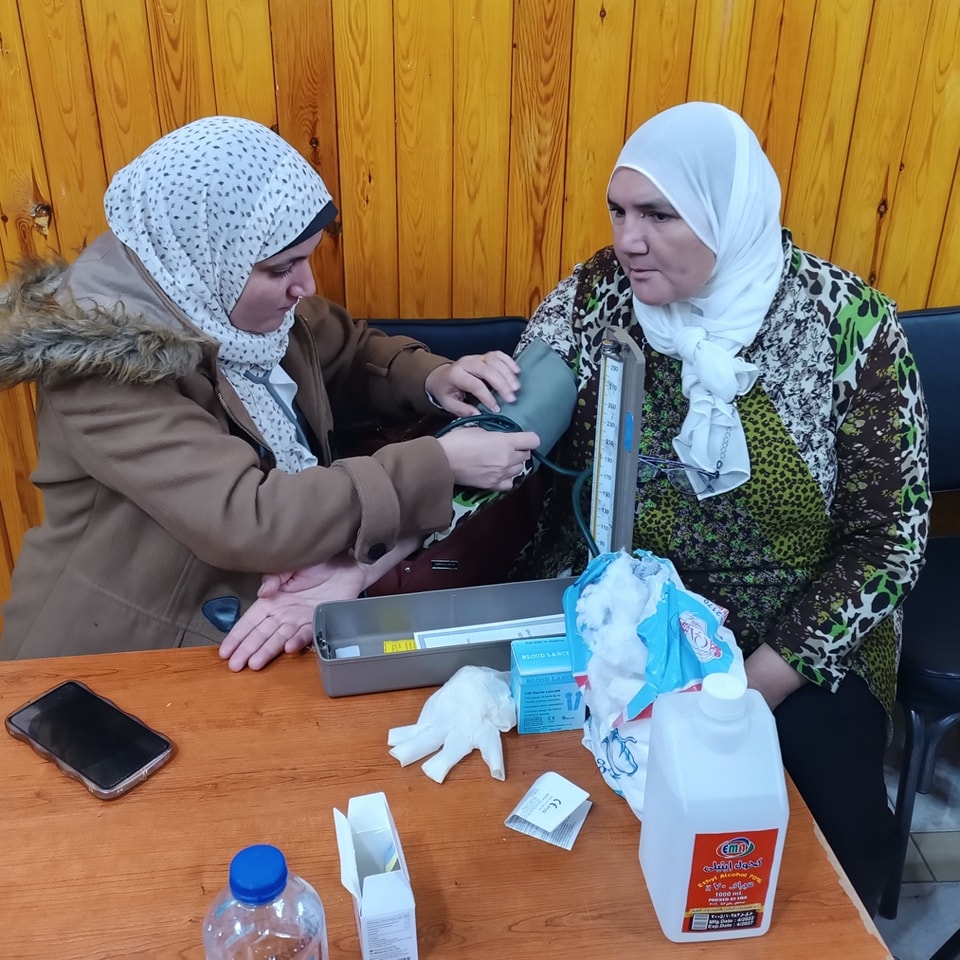 |
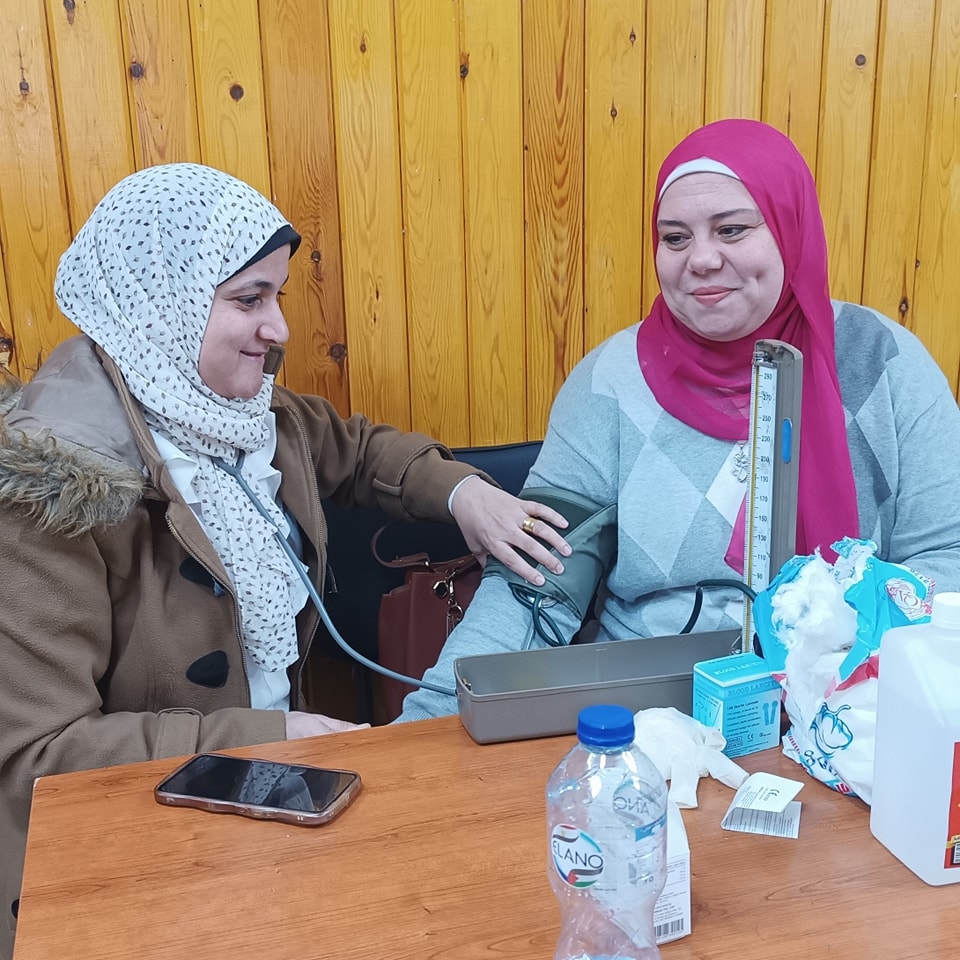 |
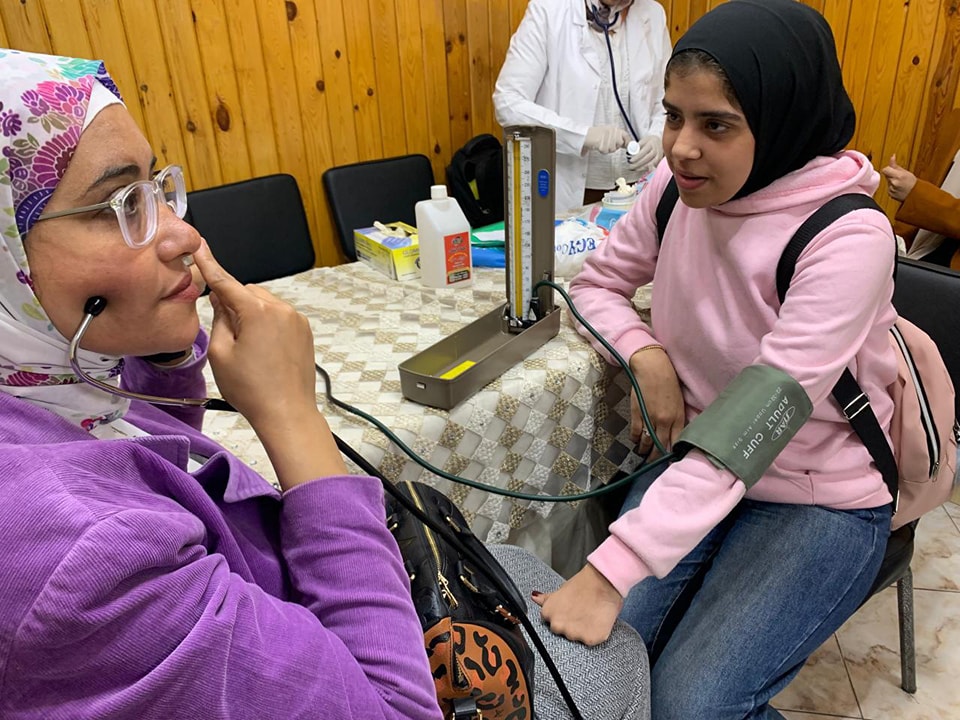 |
||
The convoy included comprehensive medical tests such as diabetes level measurements, blood pressure monitoring, and general health assessments. A total of 400 individuals, including faculty staff, teaching assistants, students, and administrative staff, benefited from the initiative.
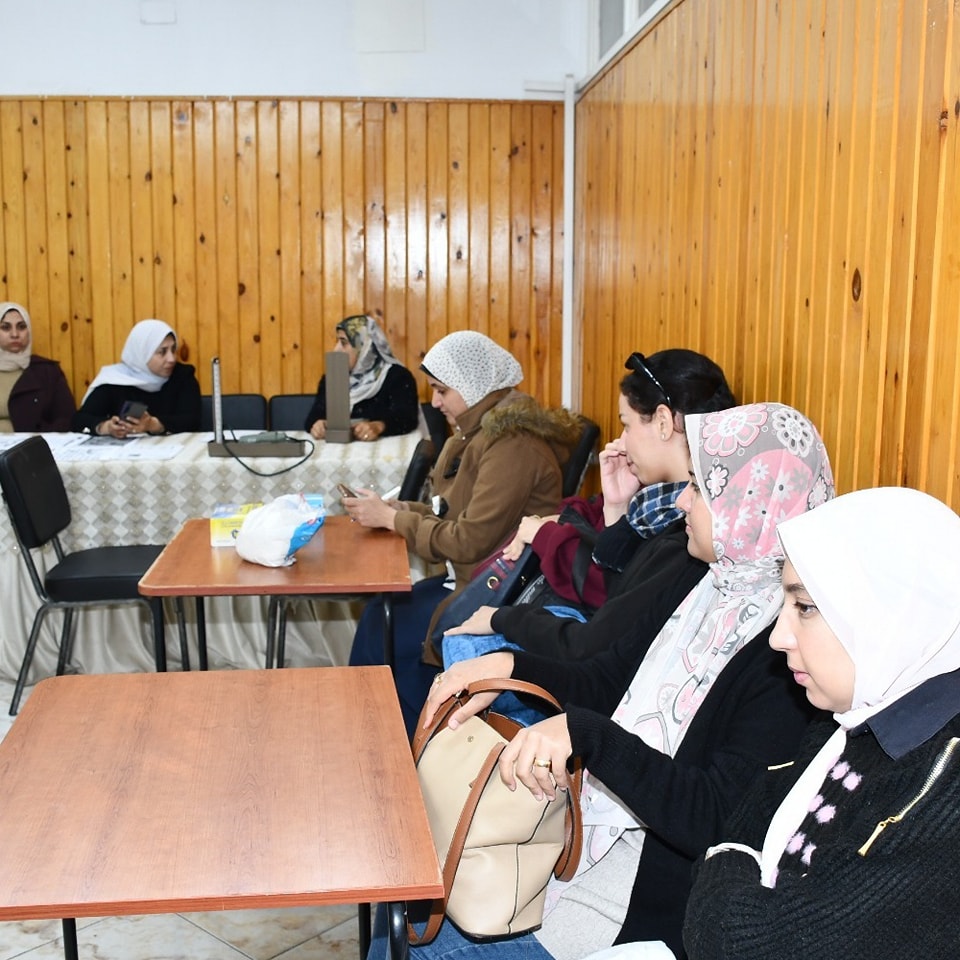 |
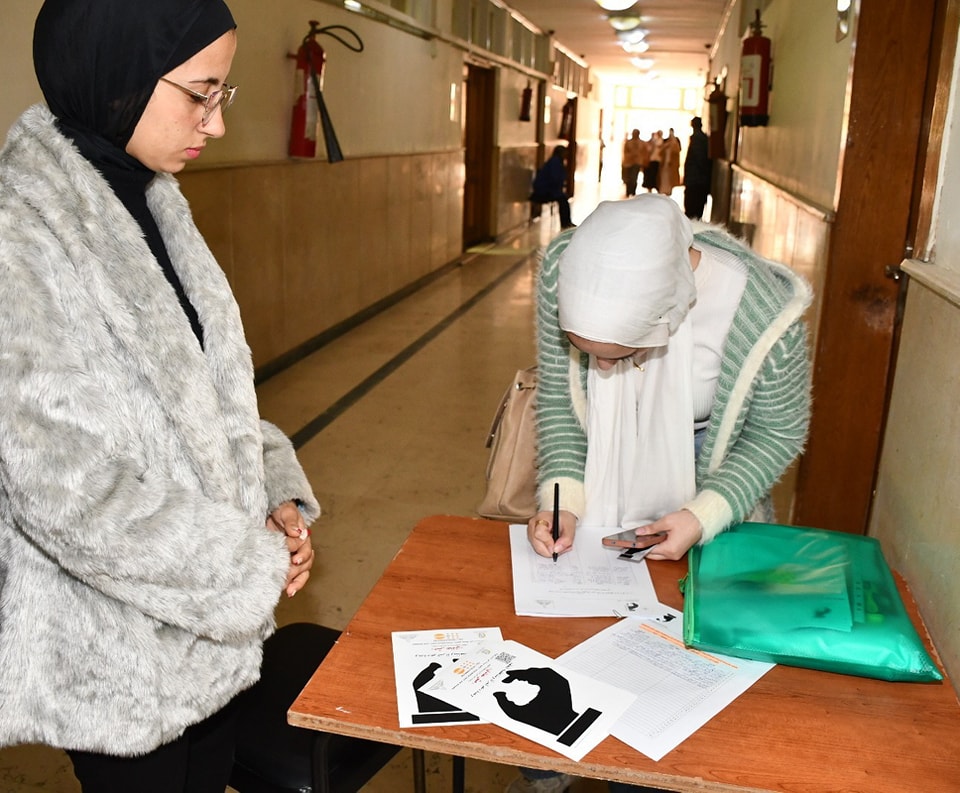 |
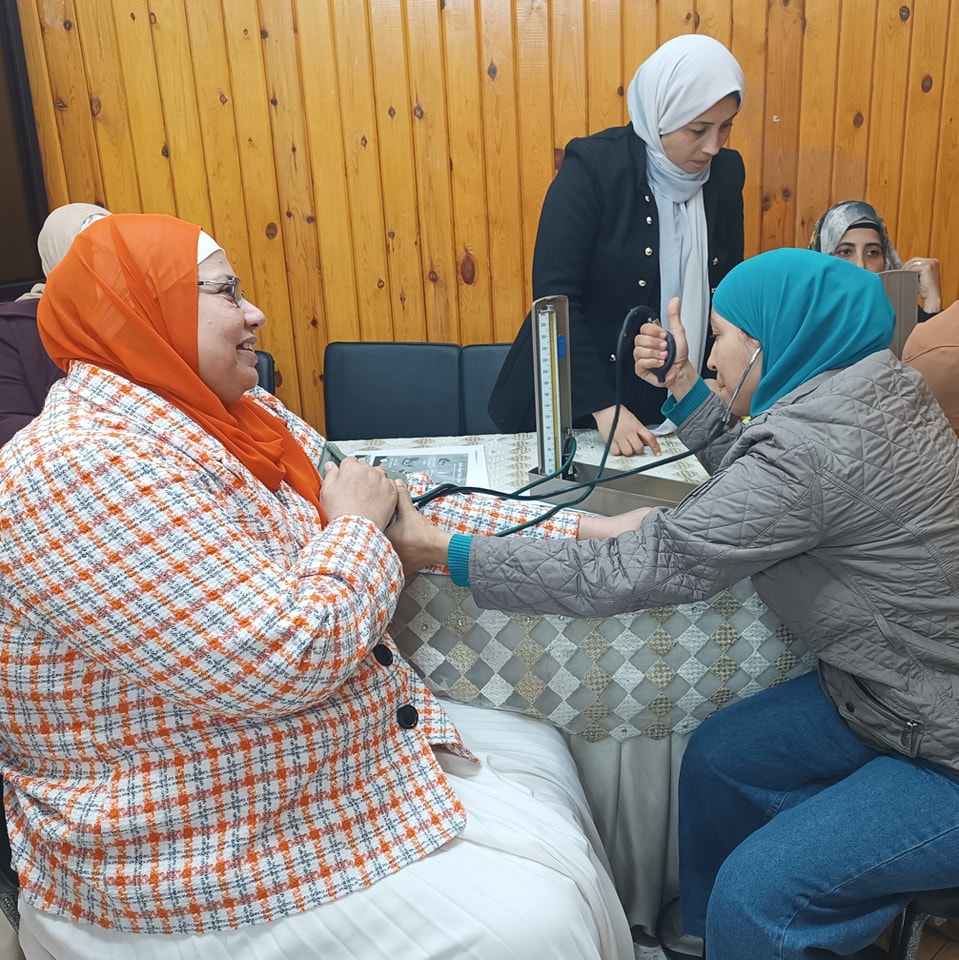 |
||
On the sidelines of the convoy's activities, several symposia and workshops were held to raise awareness among students about the importance of proper nutrition and its impact on physical and mental health, personal and bodily hygiene, how to avoid unhealthy habits, reproductive health awareness, and how to maintain it. The sessions also discussed the importance of regular check-ups and how to deal with physiological changes.
In addition, symposia were held on how to overcome psychological stress and tension, supporting students in facing challenges related to the educational and work environment, improving family relationships, awareness campaigns on prevalent diseases and methods of prevention, providing guidance on adopting a comprehensive healthy lifestyle, and conducting regular follow-ups on the students' condition, offering individual consultations when needed.


.svg)

